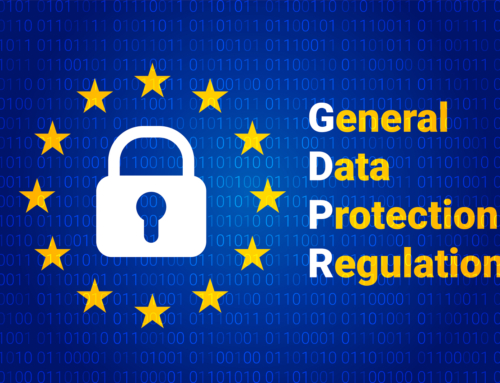Response to discussion paper by Martin Rides, Managing Director, The Software Bureau
Please find below our response to the Fundraising Preference Service discussion paper and questions raised within.
We believe it is crucial that software providers, such as ourselves, are engaged early on in the design and development process to ensure that the FPS is fit for purpose and works effectively for consumers and fundraisers alike. It is for this reason that organisations such as Royal Mail consult with us and our peers when implementing initiatives such as Mailmark. Worst case scenario for FPS is to introduce a solution that fails to stop unwanted solicitations or stymies legitimate fundraising opportunities for charities that desperately need the donations.
Scope
It will be vital for FPS to be explicit about what it is – a way to stop unwanted fundraising communication, not all charity communication. Otherwise there is a very real threat that FPS registrants will be frustrated with the seeming failure of registration to end contact if/when charities continue to communicate with them. Moreover it will be important to define ‘fundraising’ as already outlined there is a grey area around lotteries and raffles and what about the solicitation of volunteering rather than financial support?
Key Propositions
We strongly believe that FPS must make full channel data mandatory for registration (address, phone numbers and email addresses); this must include all phone and email addresses for an individual. This means that it will be possible to match FPS at different levels. We don’t want a preference service that is half-baked. It has to do what it says on the tin – stop all fundraising communications across all channels and multiple accounts. The FPS will only be as good as the data it holds. If a registrant only gives an email address, for example, it will be impossible to stop mailings, telephone calls and emails to other accounts. Additionally, full forenames should also be insisted upon at registration. This is to stop the chance of mismatching for example Ms A Smith being mistaken for Miss Anne Smith at the same address.
The FPS should cover all fundraising channels – including door drops and chugging. If it doesn’t include all channels, it will be failing the consumer. The discussion document is very clear on its aim of stopping all unwanted fundraising communications, consequently it must find a way to cover door to door and face to face. Perhaps registrants can be issued with a FPS certificate which they can carry in their wallets and produce to street fundraisers if cornered. NCVO should also consult with Royal Mail about stopping door drops as plans to include leaflets within a preference service have long been vaunted and Royal Mail has documentation as to how this can practically be enforced.
User Experience and Choice
FPS needs further thought on how it is going to offer the option of providing a list of organisations from which consumers can choose to receive communications. This is too complex and impractical from a technical point of view and previous preference solutions such as Itsmypost.com and myletterbox.com have proven that is difficult to not only set up but also to maintain. Additionally, such an approach is shown to cause consumer confusion as often an individual may have forgotten that they have given permission to an organisation and therefore may feel let down by the service when they receive solicitations.
In terms of signposting we would also recommend providing details for the registration of deceased individuals through The Bereavement Register and The Deceased Preference Service.
The data should be available either as a dynamic dataset downloadable from a central source or compiled at least weekly for distribution to FPS users. A monthly build will not allow sufficient time for processing, distribution and updating to enable the 28 day service level agreement promised.
For the above reasons it is important that software providers, such as ourselves, are engaged early on in the development cycle. We support all industry preference, opt-out and suppression services and therefore have considerable knowledge relevant to developing, maintaining and running FPS.
Duration
Maintaining the accuracy of FPS will be complex. Five per cent of the population moves house each year, almost 600,000 people pass away, over 30 million email addresses are launched and 15 per cent of people change their mobile number. Consequently within 12 months between 20 and 33 per cent of the FPS could be out of date. As already stated FPS is only as strong as the data within it and the data needs to be kept up to date. Therefore consideration needs to be made as to how to ensure that the data is maintained. One possible solution is to enforce annual re-registration.
Application
The major question for this section is how the suppression against FPS is to be made. Charity CRM databases will need to be regularly screened against FPS, but charities will also need to screen ALL of their campaign data against FPS prior to a campaign going out.
In terms of exemptions, it is our belief that no charity can be exempt, irrespective of its size. Small organisations are just as capable of abusing fundraising marketing as large ones and ultimately, as outlined in the discussion paper, the aim of FPS is to stop all unwanted fundraising communications. If some charities are exempt then it doesn’t do what it says meaning that consumers will be confused by the service and believe that it doesn’t works. There can’t be one rule for one and another for others. Caveats and small print will damage the proposition.
Vulnerable People
Careful consideration needs to be made around the registration of vulnerable people – particularly as to what constitutes vulnerable and who can register them. Having too lax a policy – friends and relatives included, opens FPS up to abuse and bogus registrations. If you would like any of the above points expanded please don’t hesitate to contact me:
Martin Rides, Managing Director, The Software Bureau
Martin.rides@thesoftwarebureau.com
07500 979273





